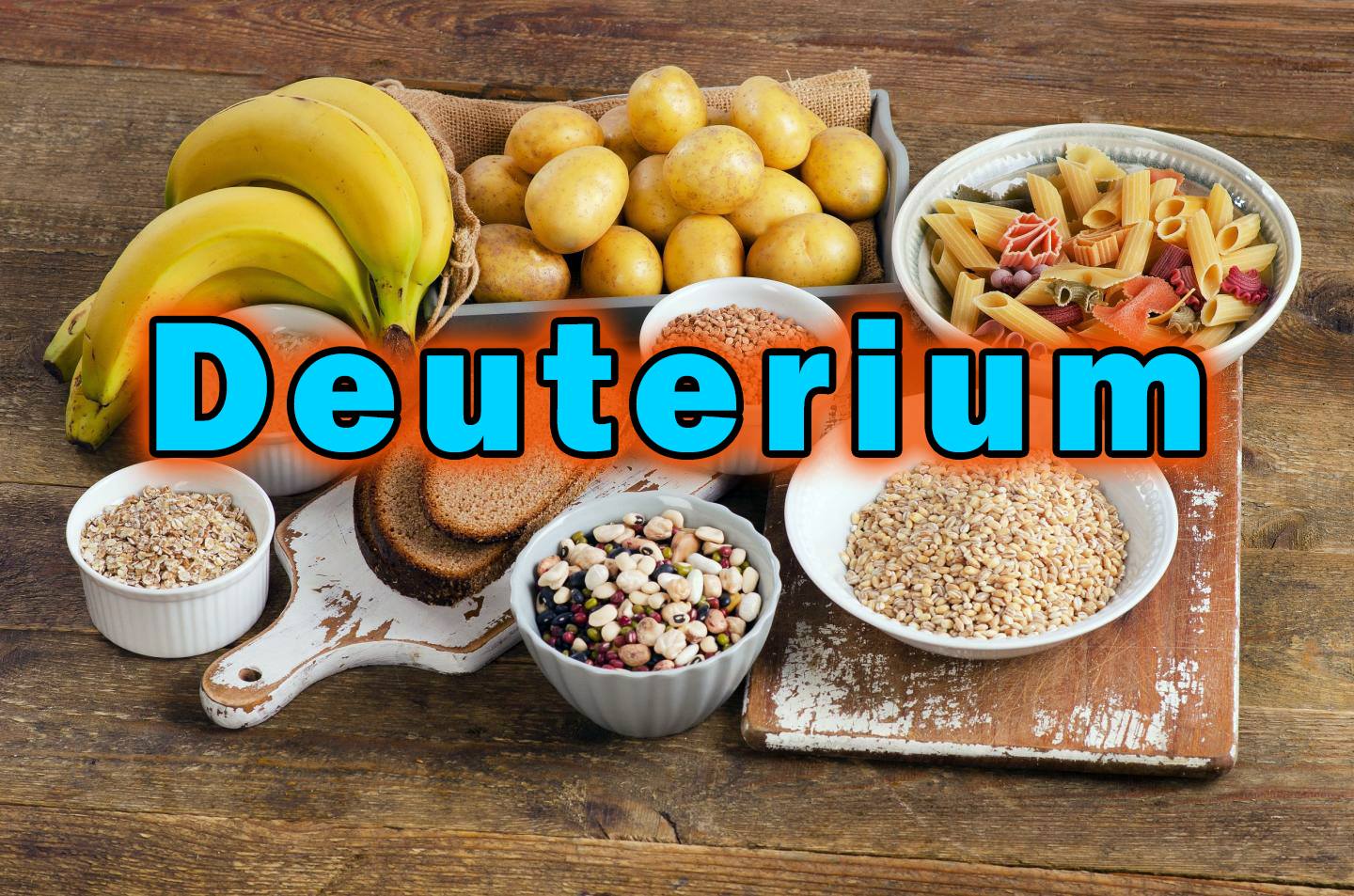So far, we’ve dealt with two of more than a dozen antinutrients and defense chemicals found in plant ‘foods’ that we will cover in this article series. Next on the list is deuterium, a compound that most dieticians, nutritionists, doctors and clueless trainers don’t even know exists.
Hydrogen comes in two “shapes”: we have regular hydrogen, which is actually called protium, and then we have deuterium. Deuterium has the same properties as hydrogen, except the fact that it has an additional neutron that is paired with a proton in the nucleus. Because of this, deuterium is twice as big and twice as heavy, and is therefore referred to as “heavy hydrogen” or “heavy water”. This difference makes deuterium behave quite differently from regular hydrogen in chemical reactions and in our bodies.
Deuterium binds to the energy process in our cell’s mitochondria, robbing us of energy while increasing oxidation. Less oxygen is drawn from the blood, energy levels are reduced and your redox potential decreases. A lowering of your redox potential means a huge increase in your risks of chronic diseases.
In other words, deuterium damages our cell’s mitochondria (the nanomotors), which in turn increases the risks of disease and premature aging. And it also decreases our energy production by hindering ATP production, lowers our ability to produce metabolic water, and thus lowering our performance and energy levels. Further down the road, as more and more mitochondria fail, it will result in cancer, and metabolic- and neurodegenerative diseases.
A buildup of deuterium can also negatively impact your sleep. It contributes to sleep apnea, snoring, restless legs, less restorative deep sleep and REM sleep (less dreaming), and other disturbances.
To better understand where you will find deuterium in abundance and how to avoid it, we need to look at its function in nature. At the core, deuterium helps things grow – it’s biologically necessary for growth in any living being during the early stages, and especially in developing plants where it binds to starches. But once a living being stops growing (reaches adulthood), having too much deuterium in your cells will be very damaging.
A very tiny amount of deuterium is found in any water source, including our drinking water. The same is true for fat- and protein sources – with the exception of heavily grain- and corn fed animals. Still, the concentration of deuterium is pretty low compared to anything that contain carbohydrates and does seldom pose any problems as our bodies are designed to handle ‘normal’ amounts of deuterium – and especially not if you run on a clean fat and protein metabolism (as a carbohydrate metabolism is very dirty and produces a lot of oxidation – furthering increasing the damage).
So, the culprits are quite obvious, deuterium is very prevalent in plant ‘foods’ with a high content of carbohydrates, such as starchy vegetables, grains and fruits. In simple terms; bread, pastry, cereal, pasta, rice, potatoes, and pretty much anything with sugar in it such as any man-made junk food.
If you’ve been a big consumer of such foods, you most likely suffer from deuterium overload. To help your body to deplete deuterium and heal, you need to avoid any food with carbohydrates and adopt our natural species’ appropriate animal-based (nose-to-tail) diet that is very low in deuterium. Also, make sure to maintain a healthy body weight, get enough quality sleep, get outside daily, and get plenty of sun exposure. That will increase your body’s ability to get rid of deuterium.
Another great way is to implement fasting. However, do not fast unless you have been on an animal-based or carnivore diet for a few weeks, just to make sure that you have plenty of essential nutrients stored and that you do not have any nutrient deficiencies.
Plenty of research studies have shown that lowering deuterium levels in the body can heal metabolic conditions, improve mental health, and slow or reverse tumors.
